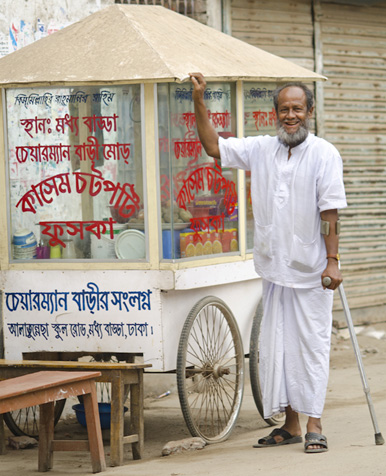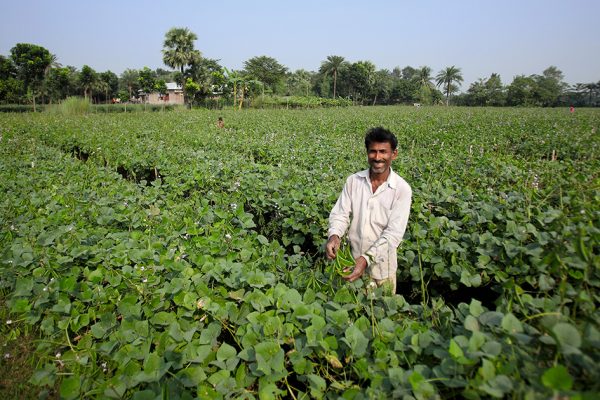Inclusive microfinance – putting the ‘ability’ into ‘disability’
Reading Time: 2 minutes
On 24 June, 2014, BRAC welcomed Joshua Goldstein from the Center for Financial Inclusion at Accion, to Bangladesh. Josh, a key figure in the campaign for disability-inclusive development, is helping to galvanise a worldwide movement that takes financial inclusion that necessary step further- including persons with disabilities. Naturally – connecting with the world’s largest NGO seemed like a great place to start.
On 24 June, 2014, BRAC welcomed Joshua Goldstein from the Center for Financial Inclusion at Accion, to Bangladesh. Josh, a key figure in the campaign for disability-inclusive development, is helping to galvanise a worldwide movement that takes financial inclusion that necessary step further- including persons with disabilities. Naturally – connecting with the world’s largest NGO seemed like a great place to start.
Inclusiveness is one of the four values that have driven BRAC to be the organisation that it is today. In its commitment to promoting financial inclusion BRAC’s microfinance products predominantly cater to poor and vulnerable women. However, as Josh explains, a particularly important demographic is women with disabilities.
“Women with disabilities are the most vulnerable… They are less likely to get married, [and therefore] need self-employment opportunities even more as they are less likely to see wealth transfers in their lives”.
Women with a disabled child or husband also struggle. Traditional breadwinners have difficulty finding work and the burden often falls on the woman’s shoulders.
A common misconception is that persons with disabilities require special interventions that necessitate significant transaction costs for MFIs. Yet being vulnerable does not mean being less capable. While it is true that many persons with disabilities may not be suitable for microfinance, many people are. Levels of ability and disability sit along a spectrum, and concerns that credit risks may be higher should not be applied to all.
This was demonstrated clearly in the early findings of a BRAC partnership with Centre for Rehabilitation of the Paralysed (CRP),an organisation internationally renowned for its excellence in delivering support to the physically disabled. Based on the successes of working with CRP the partnership was later expanded to include Action on Disability and Development (ADD). This joint initiative seeks to provide access to BRAC’s small, dabi loans for either women beneficiaries of disabled people’s organisations, or beneficiaries’ wives or mothers – recognising the effects of a disabled child or husband on the household. Furthermore, by creating linkages to an existing BRAC product, it avoided creating a whole separate service specifically for persons with disabilities.
To date, BRAC has found that clients with a disability are often confident, self-employed, entrepreneurs who rarely miss instalments or default on loans, and save regularly. For these people, disability is simply not relevant.
BRAC’s next step will be to think carefully about how to expand on what works. Maintaining a dialogue with stakeholders will prove fundamental. During a roundtable discussion involving Josh Goldstein and other external partners including ADD, CRP, and Handicap International, participants agreed on the importance of listening to clients – understanding their needs, instead of prescribing for them. In addition, continuing to work together will enable partners to learn from one another, and share the best practice.
The issue of disability remains a complex one, requiring careful planning and attention. Yet, as the partnership proved, emphasis should be not on what people can’t do, but what they can. Switching the focus on to ability instead of disability may prove to be a much more useful approach in helping people to achieve their potential, and making microfinance ever more inclusive.
Isabel Whisson is communications and knowledge management officer of BRAC’s microfinance programme.






